Fiction
I have been reading these fiction books since the beginning of 2019. I like non-fiction but have started reading fiction since the love of my life passed away.
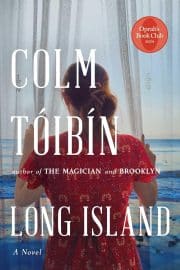
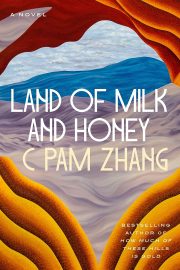
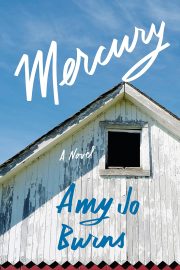
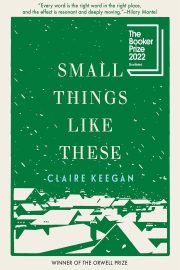
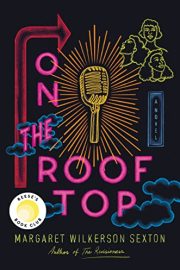
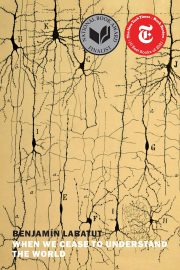
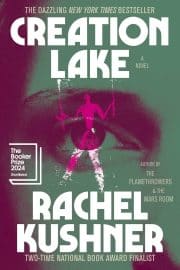
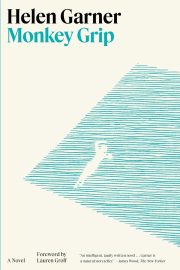
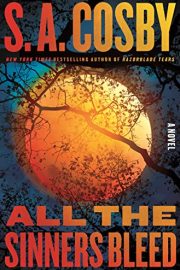
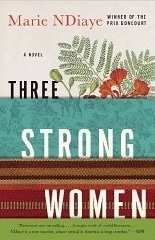
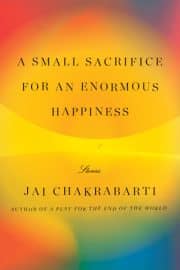
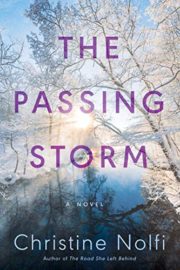
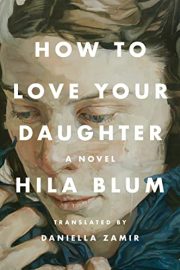
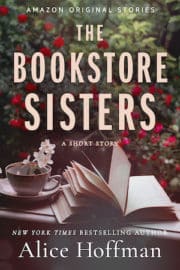
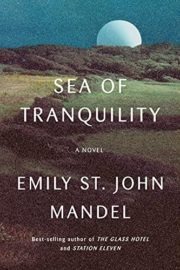
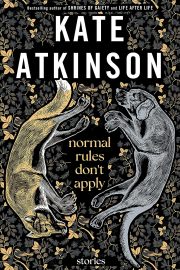
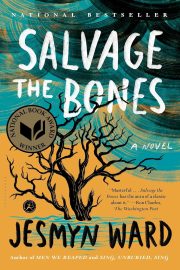
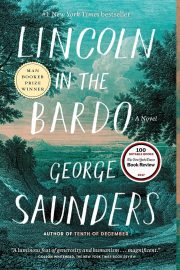
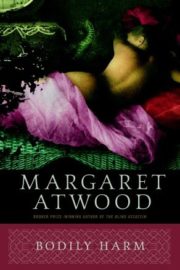
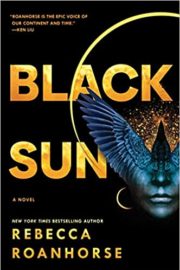
Contact US!
Have a question? Suggestion?
by Colm Tóibín
Today, I embarked on a literary journey into the distinct world of Long Island, a novel by the acclaimed author Colm Toibin. This captivating narrative continues the life of Eilis Lacey, a beloved character from Toibin’s celebrated work Brooklyn, but two decades have passed. Eilis, now in her forties, is married to Tony Fiorello, an Italian-American plumber, and they are raising two teenagers.
The novel offers a fresh perspective on Eilis’s life, struggles, and journey of self-discovery. She lives with Tony’s large and loving extended family on a cul-de-sac in Lindenhurst, Long Island, which plays a significant role in the story. Though Eilis feels connected to her Irish roots, she has yet to return to Ireland in many years.
One fateful day, a visitor arrives unannounced at Eilis’s doorstep, bringing with him a life-altering revelation. He reveals that his wife is carrying Tony’s child and plans to leave the baby with Eilis once it’s born. This unexpected twist throws Eilis into a maelstrom of emotions and a labyrinthine decision-making process. As the emotional core of Toibin’s narrative, this journey of self-discovery and emotional upheaval is sure to hold readers spellbound.
‘Long Island‘ is a poignant exploration of unfulfilled desires and the enigmatic secrets that shape our lives. Eilis’s reticence speaks volumes, and Toibin masterfully gives voice to her concealed yearnings and profound connections. For instance, Eilis often finds herself lost in memories of her life in Ireland, particularly her relationship with her mother. Though unspoken, these recollections lay bare her profound yearning for her homeland and family. This evocative tale of love, longing, and the quest for self-discovery is bound to enthrall readers.
NPR’s Mary Louise Kelly speaks with author Colm Toibin about his new novel Long Island.
When you purchase a book through one of my links, I earn a small commission that helps support my passion for reading. This contribution allows me to buy even more books to share with you, creating an incredible cycle of discovering great reads together! Your support truly makes a difference!
by C Pam Zhang
Today, I commenced reading Land of Milk and Honey: A Novel by C Pam Zhang, the award-winning author of How Much of These Hills Is Gold; she returns with a rapturous and revelatory novel about a young chef whose discovery of pleasure alters her life and, indirectly, the world. With the arrival of forest fire smoke in my neighborhood, it seemed a timely book to read.
A smog has spread. Food crops are rapidly disappearing. A chef escapes her dying career in a dreary city to take a job at a decadent mountaintop colony seemingly free of the world’s troubles.
There, the sky is clear again. Rare ingredients abound. Her enigmatic employer and his visionary daughter have built a lush new life for the global eliteZhan, one that reawakens the chef to the pleasures of taste, touch, and her body.
The chef’s boundaries undergo a thrilling erosion in this atmosphere of hidden wonders and cool, seductive violence. Soon, she is pushed to the center of a startling attempt to reshape the world far beyond the plate.
Sensuous and surprising, joyous and bitingly sharp, told in language as alluring as it is original, Land of Milk and Honey provocatively bare the ethics of seeking pleasure in a dying world. It is a daringly imaginative exploration of desire and deception, privilege and faith, and the roles we play to survive. Most of all, it is a love letter to food, wild delight, and the transformative power of a woman embracing her own appetite.
The Jan Lilien Education Fund sponsors ongoing sustainability and environmental awareness programs. Gifts made this month; I will match dollar-for-dollar. All donations are tax-deductible.
I receive a commission when you buy a book or product using a link on this page. Thank you for supporting Sharing Jan’s Love blog.
by Amy Jo Burns
Today, I started reading Mercury: A Novel about a roofing family. The family’s bond of loyalty is tested when they uncover a long-hidden secret at the heart of their blue-collar town. The book is written by Amy Jo Burns, the author of the critically acclaimed novel Shiner, which I read and enjoyed in 2022. I highly recommend it.
The story is set in 1990, and it follows the journey of a seventeen-year-old girl named Marley West, who arrives in the river valley town of Mercury, Pennsylvania. She is a loner who is looking for a place to belong. The first thing she sees when she gets to town is three men standing on a rooftop, and they soon become her whole world.
Marley becomes a young wife to one of the Joseph brothers, The One Who Got Away to another, and an adopted mother to all of them. Marley guides these unruly men as their mother fades away and their roofing business crumbles under the weight of their unwieldy father’s inflated ego. Years later, an eerie discovery in the church attic causes old wounds to resurface, and suddenly, the family’s survival hangs in the balance.
With Marley as their guide, the Joseph brothers must decide whether they can save the family they’ve always known or build something more substantial in its place.
The Jan Lilien Education Fund sponsors ongoing sustainability and environmental awareness programs. Regarding gifts made this month, I will match dollar for dollar. All donations are tax-deductible.
I receive a commission when you buy a book or product using a link on this page. Thank you for supporting Sharing Jan’s Love blog.
by Claire Keegan
Today, I read “Small Things Like These” by Claire Keegan, one of the New York Times’s 100 Best Books of the 21st Century, and the seventeenth book I have read from that list. “Small Things Like These” is award-winning author Claire Keegan‘s landmark new novel, a tale of one man’s courage and a remarkable portrait of love and family.
The story is set in 1985 in a small Irish town. During the weeks leading up to Christmas, Bill Furlong, a coal merchant and family man, faces his busiest season. Early one morning, while delivering an order to the local convent, Bill makes a discovery that forces him to confront his past and the complicit silences of a town controlled by the church.
I found this short but well-written novel very impactful. The following quote explains the powerful impact of the need for meaning and purpose in our lives as Furlong walks in the snow after taking action after bringing home a young girl from a Magdalen laundry. How often can we ignore the small things like these and still look ourselves in the mirror?
“As they carried on along and met more people Furlong did and did not know, he found himself asking was there any point in being alive without helping one another? Was it possible to carry on along through all the years, the decades, through an entire life, without once being brave enough to go against what was there and yet call yourself a Christian, and face yourself in the mirror?”
As an international bestseller, ‘Small Things Like These‘ is a profoundly moving story of hope and quiet heroism. It’s a narrative that will make you admire the characters and stir your empathy, all crafted by one of our most critically acclaimed and iconic writers. The characters in the story are so relatable that you will feel understood and deeply invested in their journey.
by Margaret Wilkerson Sexton
On the Rooftop: A Novel by Margaret Wilkerson Sexton, is a stunning novel about a mother whose dream of musical stardom for her three daughters collides with the daughters’ ambitions for their own lives—set against the backdrop of gentrifying 1950s San Francisco. The first few pages moved glacially and then the story unfolded fully and became a page-turner that I highly recommend.
After hearing Ms. Sexton’s interview on Get Lit with All Of It, a monthly on-air, social media, in-person, and live-stream book club hosted by Alison Stewart of WNYC’s All Of It, I picked up the book. The novel had been on my to-read list.
The novel was loosely based on Fiddler on the Roof and it worked exceedingly well. Vivian is the overbearing mother and the daughters who have their own dreams and goals. With urban renewal, AKA Urban Renewal, as the backdrop, the novel was one that I could not put down.
The small section of the song that Esther writes so she can sing for her people, was a song I wish I could hear in its entirety. That Chole choose to sing it for final audition made it even more powerful.
You put words to the music inside my heart You showed me the world could be its own art I’d never felt myself so whole before I’d never known how much I could reach for.
The Goodreads summary provides an overview,
At home they are just sisters, but on stage, they are The Salvations. Ruth, Esther, and Chloe have been singing and dancing in harmony since they could speak. Thanks to the rigorous direction of their mother, Vivian, they’ve become a bona fide girl group whose shows are the talk of the Jazz-era Fillmore.
Now Vivian has scored a once-in-a-lifetime offer from a talent manager, who promises to catapult The Salvations into the national spotlight. Vivian knows this is the big break she’s been praying for. But sometime between the hours of rehearsal on their rooftop and the weekly gigs at the Champagne Supper Club, the girls have become women, women with dreams that their mother cannot imagine.
The neighborhood is changing, too: all around the Fillmore, white men in suits are approaching Black property owners with offers. One sister finds herself called to fight back, one falls into the comfort of an old relationship, and another yearns to make her voice heard. And Vivian, who has always maintained control, will have to confront the parts of her life that threaten to splinter: the community, The Salvations, and even her family.
The Jan Lilien Education Fund sponsors ongoing sustainability and environmental awareness programs. Gifts made this month; I will match dollar-for-dollar. All donations are tax-deductible.
I receive a commission when you buy a book or product using a link on this page. Thank you for supporting Sharing Jan’s Love blog.
by Benjamín Labatut
Today, I began reading When We Cease to Understand the World by Benjamín Labatut, translated by Adrian Nathan West. This book, listed on The New York Times 100 Best Books of the 21st Century, promises to be thought-provoking as it delves into the intricate connections between scientific and mathematical discovery, madness, and destruction.
In a world where scientific advancements often involve ethical dilemmas and societal implications, this book offers a unique perspective on the lives of scientists who have shaped our understanding of the world. Fritz Haber, Alexander Grothendieck, Werner Heisenberg, and Erwin Schrödinger are some of the luminaries whose troubled lives Benjamín Labatut deeply explores in his fictional examination. Labatut shows how these scientists and thinkers grappled with profound questions of existence, experiencing strokes of unparalleled genius, alienating friends and lovers, and descending into isolation and insanity. Their discoveries, some of which significantly improved human life, while others led to chaos and unimaginable suffering, continue to shape our world.
With a breakneck pace and a wealth of disturbing detail, Labatut uses fiction’s imaginative resources to tell the stories of the scientists and mathematicians who expanded our notions of the possible.
by Rachel Kushner
Today, I started reading Creation Lake: A Novel by Rachel Kushner, a two-time finalist for the Booker Prize and the National Book Award. This novel follows a seductive and cunning American woman who infiltrates an anarchist collective in France. It is a gripping page-turner filled with dark humor. Creation Lake is Kushner‘s finest achievement—a work of high art, comedy, and unforgettable pleasure.
The story revolves around a secret agent, a thirty-four-year-old American woman who employs ruthless tactics and possesses striking beauty. She is sent to carry out covert operations in France. The narrator introduces herself as “Sadie Smith” when she arrives at a rural commune of French subversives, whom she is secretly monitoring, and to her lover, Lucien, a young and well-to-do Parisian whom she meets by so-called “cold bump”—making him believe their encounter was accidental. Like everyone else she targets, Lucien is helpful to her and ultimately manipulated by her. Sadie operates with strategy and deception, following instructions from her “contacts”—shadowy figures in business and government. Initially, these contacts want her to provoke reactions. As the story progresses, their demands become more complex.
In this region filled with ancient farms and prehistoric caves, Sadie becomes captivated by a mysterious figure named Bruno Lacombe. Bruno mentors young activists who believe that the path to emancipation lies not in revolt but in a return to the ancient past. Just as Sadie thinks she is the seductress and puppet master of those she surveils, Bruno enchants her with his ingenious counter-histories, poignant laments, and tragic narrative.
In brief, striking sections, Rachel Kushner‘s interpretation of “noir” is taut and dazzling.
When you purchase a book through one of my links, I earn a small commission that helps support my passion for reading. This contribution allows me to buy even more books to share with you, creating an incredible cycle of discovering great reads together! Your support truly makes a difference!
by Helen Garner
Today, I began reading Monkey Grip: A Novel by Helen Garner. It’s a book that launched the career of one of Australia’s most celebrated writers. The story follows the infatuations of a young, single mother fascinated by the excesses of Melbourne’s late-70s counterculture. Monkey Grip is a seminal novel about Australia’s turbulent 1970s, including communal households, music, friendships, children, love, drugs, and sex.
Helen Garner is a renowned novelist, short-story writer, and journalist. She’s best known for her frank, unsparing, and intricate portrayals of Australian life, often drawn from the pages of her journals and diaries. A new US edition of her debut novel, which establishes Garner’s masterful and quietly radical literary voice, is now available.
The novel is set in Australia during the late 1970s and tells the story of Nora, a single mother and writer. Nora navigates Melbourne’s bohemian underground with her young daughter, Gracie, in tow. Nora falls in love with Javo, a flighty man trapped in his addiction. As their relationship disintegrates, Nora struggles to wean off a love that feels impossible to live without.
When Monkey Grip was first published in 1977, it caused a sensation. Critics praised Garner for her craft, but many criticized her gritty depictions of the human body, frankness about sex and drugs, the mess of motherhood, and her unabashed use of her own life as inspiration. Today, such criticism feels old-fashioned and glaringly gendered, and Monkey Grip is considered a modern masterpiece.
by S. A. Cosby
Today, I delved into the gripping pages of “All the Sinners Bleed” by S. A. Cosby. This enthralling novel centers around Titus Crown, the first African American sheriff in Charon County, Virginia. Despite the county’s reputation for traditional customs such as moonshine, cornbread, and honeysuckle, Titus, with his FBI expertise, knows that the peace won’t last forever.
On the first anniversary of Titus’s election, a schoolteacher is murdered by an ex-student, and Titus’s deputies take down the perpetrator. As Titus delves deeper into the case, he uncovers a web of horrendous crimes and finds a serial killer lurking in plain sight, haunting Charon’s dirt roads and woodland clearings.
Titus is determined to solve the case, even though it is linked to a nearby church, and he harbors a personal secret that plagues him. However, he faces opposition from a far-right group who want to hold a parade to honor the town’s Confederate past while he tries to solve the issue.
Despite the challenges, Titus remains resolute in his love for Charon and his commitment to finding justice. The collision of religion and hatred cannot deter him from his duty.
The Jan Lilien Education Fund sponsors ongoing sustainability and environmental awareness programs. Gifts made this month; I will match dollar-for-dollar. All donations are tax-deductible.
I receive a commission when you buy a book or product using a link on this page. Thank you for supporting Sharing Jan’s Love blog.

Read: August 2022
by Marie NDiaye
Three Strong Women by Marie NDiaye is a novel that focuses on three women who say no. Winner of the coveted Prix Goncourt, the first by a black woman, Marie NDiaye, creates a luminous narrative triptych as harrowing as beautiful. With lyrical intensity, Marie NDiaye masterfully evokes the relentless denial of dignity, to say nothing of happiness, in these lives caught between Africa and Europe. I highly recommend this novel.
John Fletcher translated the Kindle version.
The Goodreads summary provides an overview,
This is the story of three women who say no: Norah, a French-born lawyer who finds herself in Senegal, summoned by her estranged, tyrannical father to save another victim of his paternity; Fanta, who leaves a modest but contented life as a teacher in Dakar to follow her white boyfriend back to France, where his delusional depression and sense of failure poison everything; and Khady, an impoverished widow put out by her husband’s family with nothing but the name of a distant cousin (the Fanta above) who lives in France, a place Khady can scarcely conceive of but toward which she must now take desperate flight.
With lyrical intensity, Marie NDiaye masterfully evokes the relentless denial of dignity, to say nothing of happiness, in these lives caught between Africa and Europe. We see with stunning emotional exactitude how ordinary women discover unimagined reserves of strength, even as their humanity is chipped away. Three Strong Women admits to an immigrant experience rarely, if ever, examined in fiction, but even more into the depths of the suffering heart.
The Jan Lilien Education Fund sponsors ongoing sustainability and environmental awareness programs. Gifts made this month are matched dollar-for-dollar. All donations are tax-deductible.
I receive a commission when you buy a book or product using a link on this page. Thank you for supporting Sharing Jan’s Love blog.
by Jai Chakrabarti
I recently discovered an excellent short story collection called A Small Sacrifice for an Enormous Happiness: Stories by Jai Chakrabarti. This author won the National Jewish Book Award for debut fiction with his novel A Play for the End of the World, and it is clear that his talent extends to the short story form as well.
The stories in this collection follow men and women as they navigate transformations and familial bonds across countries and cultures. Each story is unique and captivating, but the one that struck me was the title story about a closeted gay man in 1980s Kolkata who seeks to have a child with his lover’s wife. Chakrabarti’s skill as a storyteller is on full display in this story and throughout the collection.
I highly recommend A Small Sacrifice for an Enormous Happiness: Stories if you want a book exploring love and family’s complexities in uncertain times. Each story is a masterful exploration of what it means to cultivate a family across borders, religions, and races. I look forward to reading more by Jai Chakrabarti in the future.
The Goodreads summary provides an overview,
In the fourteen masterful stories of this collection, Jai Chakrabarti crosses continents and cultures to explore what it means to cultivate a family across borders, religions, and races today.
In the title story, a closeted gay man in 1980s Kolkata seeks to have a child with his lover’s wife. An Indian widow, engaged to a Jewish man, struggles to balance her cultural identity with the rituals and traditions of her newfound family. An American musician travels to see his guru for the final time—and makes a promise he cannot keep. A young woman from an Indian village arrives in Brooklyn to care for the toddler of a biracial couple. And a mystical agent is sent by a mother to solve her son’s domestic problems.
Throughout, the characters’ most vulnerable desires shape life-altering decisions as they seek to balance their needs against those of the people they hold closest.
The Jan Lilien Education Fund sponsors ongoing sustainability and environmental awareness programs. Gifts made this month; I will match dollar-for-dollar. All donations are tax-deductible.
I receive a commission when you buy a book or product using a link on this page. Thank you for supporting Sharing Jan’s Love blog.
by Christine Nolfi
The Passing Storm by Christine Nolfi is a gripping, openhearted novel about family, reconciliation, and bringing closure to the secrets of the past. From the first chapter, it was a pageturner and a book that engaged me when I needed to focus on life’s challenges. I was looking for something different from my most recent books.
I very much enjoyed this novel. It is focused on losses, including one parent and a daughter. I had not anticipated that but found that Ms. Nolfi handled that in an empathic way that did not trigger my grief but helped me understand my grief. The primary characters Rae, Quinn, Connor, and Griffin are brought to life by the writer. It left me wanting to know what happens to them now that they have survived the early stages of grief.
The Goodreads summary provides a good overview.
Early into the turbulent decade of her thirties, Rae Langdon struggles to work through grief she never anticipated. With her father, Connor, she tends to their Ohio farm, a forty-acre spread that has enjoyed better days. As memories sweep through her, some too precious to bear, Rae gives shelter from a brutal winter to a teenager named Quinn Galecki.
His parents have thrown out Quinn, a couple too troubled to help steer the misunderstood boy through his losses. Now Quinn has found a temporary home with the Langdons—and an unexpected kinship because Rae, Quinn, and Connor share a past and understand one another’s pain. But its depths—and all its revelations and secrets—have yet to come to light. To finally move forward, Rae must confront them and fight for Quinn, whose parents have other plans for their son.
There might be hope for a new season with forgiveness, love, and the spring thaw—a second chance Rae believed in her heart was gone forever.
When you buy a book or product using a link on this page, I receive a commission. Thank you for supporting Sharing Jan’s Love blog.
by Hila Blum
I started reading a novel called “How to Love Your Daughter,” written by Hila Blum and translated by Daniella Zamir today. The book explores a complicated relationship between a mother and her grown daughter. It raises the question of how much harm we can do to our loved ones when love blinds us.
The story takes place thousands of miles away from home, where a woman finds herself peeking through well-lit windows at her two granddaughters. She has never met them before, as they are the daughters of her estranged daughter, whom she hasn’t seen in years.
The book’s central theme revolves around the woman’s attempt to understand how a once-loving relationship between her and her daughter ended up in such a distant and unfathomable state. The story shifts past and present as the woman unravels her memories and long-buried emotions. She tries to make sense of the seemingly insignificant moments of parental care that, combined, may have undermined what she valued most.
The author, Blum, skillfully delves into the complexities of family life, where a parent can easily cross the line between protectiveness and possession without even realizing it. The story leaves us wondering whether it’s possible ever to find our way back from such a point.
The Jan Lilien Education Fund sponsors ongoing sustainability and environmental awareness programs. Gifts made this month; I will match dollar-for-dollar. All donations are tax-deductible.
I receive a commission when you buy a book or product using a link on this page. Thank you for supporting Sharing Jan’s Love blog.
by Alice Hoffman
The Bookstore Sisters: A Short Story by Alice Hoffman is a heartfelt short story about family, independence, and finding your place in the world. The overview should be enough to encourage everyone to read the book. I recommend this short story without any reservations. Ms. Hoffman has written a moving story that helped me to grapple with grief and reminded me that love is the highest and most important goal that humans can aspire.
Isabel Gibson has all but perfected the art of forgetting. She’s a New Yorker now, with nothing left to tie her to Brinkley’s Island, Maine. Her parents are gone, the family bookstore is all but bankrupt, and her sister, Sophie, will probably never speak to her again.
But when a mysterious letter arrives in her mailbox, Isabel feels drawn to the past. After years of fighting for her independence, she dreads the thought of going back to the island. What she finds there may forever alter her path—and change everything she thought she knew about her family, home, and herself.
Isabel sums up the power of love in this paragraph,
She was thinking about the way a fish loved a river, and a bird loved the sky, and a mother loved her daughters. She was remembering everything. How love could change a person, how it could cause you the greatest sorrow or shelter you from harm. There were moths hitting against the windowpanes. A night heron called in the marshland as if its heart were breaking.
I have always fantasized about working in or owning a small bookstore.
The Bookstore Sisters: A Short Story rekindled that dream and reminded me of the power of love.
The Jan Lilien Education Fund sponsors ongoing sustainability and environmental awareness programs. Gifts made this month; I will match dollar-for-dollar. All donations are tax-deductible.
I receive a commission when you buy a book or product using a link on this page. Thank you for supporting Sharing Jan’sJan’s Love blog.
by Emily St. John Mandel
Sea of Tranquility by Emily St. John Mandel has been on my reading list for months. I recommend the book without reservations. Sea of Tranquility is a novel of art, time, love, and plague that takes the reader from Vancouver Island in 1912 to a dark colony on the moon three hundred years later, unfurling a story of humanity across centuries and space. It was a page-turner from page one.
With the delay of Artemis I, I have been thinking a lot about the Sea of Tranquility, the original lunar landing site. Sea of Tranquility reminded me of the days of my youth when we believed that NASA would colonize the moon as it is in the novel.
One of the passages that moved me was when Olive Llewellyn asked, “What if it always is the end of the world.” A second profound passage asks, “A life lived in a simulation is still a life.”
The Goodreads summary provides a good overview,
Edwin St. Andrew is eighteen years old when he crosses the Atlantic by steamship, exiled from polite society following an ill-conceived diatribe at a dinner party. He enters the forest, spellbound by the beauty of the Canadian wilderness, and suddenly hears the notes of a violin echoing in an airship terminal—an experience that shocks him to his core.
Two centuries later a famous writer named Olive Llewellyn is on a book tour. She’s traveling all over Earth, but her home is the second moon colony, a place of white stone, spired towers, and artificial beauty. Within the text of Olive’s bestselling pandemic novel lies a strange passage: a man plays his violin for change in the echoing corridor of an airship terminal as the trees of a forest rise around him.
When Gaspery-Jacques Roberts, a detective in the Night City, is hired to investigate an anomaly in the North American wilderness, he uncovers a series of lives upended: The exiled son of an earl driven to madness, a writer trapped far from home as a pandemic ravages Earth, and a childhood friend from the Night City who, like Gaspery himself, has glimpsed the chance to do something extraordinary that will disrupt the timeline of the universe.
The Jan Lilien Education Fund sponsors ongoing sustainability and environmental awareness programs. Gifts made this month; I will match dollar-for-dollar. All donations are tax-deductible.
I receive a commission when you buy a book or product using a link on this page. Thank you for supporting Sharing Jan’s Love blog.
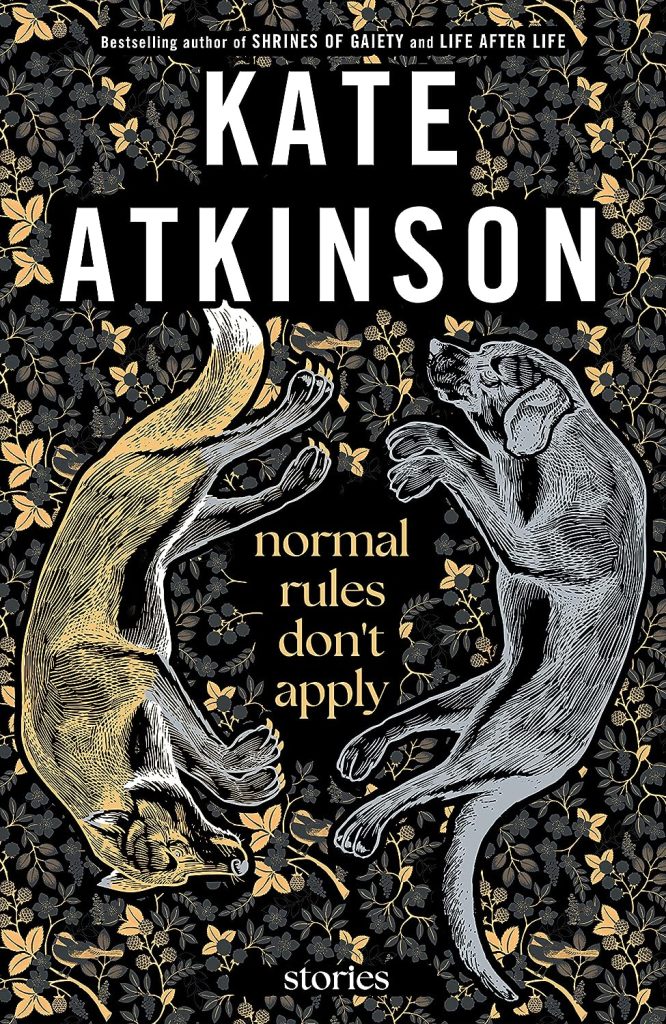
Read: September 2023
by Kate Atkinson
Today, I commended reading Normal Rules Don’t Apply: Stories by Kate Atkinson, is a dazzling collection of eleven interconnected stories from the bestselling, award-winning author of Shrines of Gaiety and Life After Life, with everything that readers love about her novels—the inventiveness, the verbal felicity, the sharp observations on human nature, and the deeply satisfying emotional wallop.
Nothing is quite as it seems in this collection of eleven dazzling stories. We meet a queen who makes a bargain she cannot keep, a secretary who watches over the life she has just left, and a man who bets on a horse that may—or may not—have spoken to him. Everything that readers love about the novels of Kate Atkinson is here—the inventiveness, the verbal felicity, the sharp observations on human nature, and the deeply satisfying emotional wallop.
A startling and funny feast for the imagination, these stories conjure a multiverse of subtly connected worlds while illuminating the webs of chance and connection among us all.
The Jan Lilien Education Fund sponsors ongoing sustainability and environmental awareness programs. Gifts made this month; I will match dollar-for-dollar. All donations are tax-deductible.
I receive a commission when you buy a book or product using a link on this page. Thank you for supporting Sharing Jan’s Love blog.
by Jesmyn Ward
I’ve started reading “Salvage the Bones: A Novel” by Jesmyn Ward, a two-time National Book Award winner and author of “Sing, Unburied, Sing.” The book delivers a gritty yet tender story about family and poverty in the days leading up to Hurricane Katrina. Hurricane Helene’s devastation makes it the perfect time to read this book. The novel is among The New York Times’ 100 Best Books of the 21st Century.
The story is set in Bois Sauvage, Mississippi, where a hurricane is building over the Gulf of Mexico, threatening the city. Esch’s father is growing concerned, although he is often absent and a heavy drinker. Esch and her three brothers are stocking food, but there is little to save. Esch, who is fourteen, is pregnant and struggling to keep down the little food she gets. Her brother Skeetah is trying to care for his pit bull’s new litter, which is dying one by one. Meanwhile, brothers Randall and Junior struggle with family dynamics and lack parental guidance.
As the twelve days that make up the novel’s framework yield their dramatic conclusion, this unforgettable family – motherless children sacrificing for one another, protecting and nurturing where love is scarce – pulls itself up to face another day. The novel is a big-hearted story about familial love and community against all odds, offering a wrenching look at the lonesome, brutal, and restrictive realities of rural poverty. “Salvage the Bones” is a revelatory, honest, and poignant exploration of social issues, filled with poetry and emotional depth.
by George Saunders
My journey with “Lincoln in the Bardo: A Novel” by George Saunders began with recognition as one of The New York Times’ 100 Best Books of the Century. As I turned its pages, I was immersed in its profound exploration of living and loving in the face of inevitable endings. The book, which struck a personal chord with me after a loss, is a testament to Saunders’ storytelling prowess and a must-read for those interested in Abraham Lincoln.
February 1862. The Civil War is less than one year old. The fighting has begun in earnest, and the nation has already realized it is in for a long, bloody struggle. Meanwhile, President Lincoln’s beloved eleven-year-old son, Willie, lies upstairs in the White House, gravely ill. In a matter of days, despite predictions of a recovery, Willie dies and is laid to rest in a Georgetown cemetery. “My poor boy, he was too good for this earth,” the president says at the time. “God has called him home.” Newspapers report that a grief-stricken Lincoln returns, alone, to the crypt several times to hold his boy’s body.
From a seed of historical truth, George Saunders weaves an unforgettable tale of familial love and loss that transcends its realistic, historical framework. The story takes a daring leap into a realm that is hilarious and terrifyingly supernatural. Willie Lincoln’s journey in a strange purgatory, where ghosts mingle, gripe, commiserate, quarrel, and enact bizarre acts of penance, is a testament to Saunders’ imaginative prowess. The monumental struggle over young Willie’s soul in this transitional state, known as the bardo in the Tibetan tradition, is a narrative that will leave you spellbound.
Lincoln in the Bardo is an astonishing feat of imagination and a bold step forward from one of his generation’s most important and influential writers. Formally daring, generous in spirit, and deeply concerned with matters of the heart, it is a testament to fiction’s ability to speak honestly and powerfully about the things that matter to us. Saunders has invented a thrilling new form that deploys a kaleidoscopic, theatrical panorama of voices to ask a timeless, profound question: How do we live and love when we know everything we love must end?
by Margaret Atwood
Bodily Harm by Margaret Atwood is one of the books I picked up from our bookshelf in the first few months after Jan’s death. Being someone who has always fantasized about being a journalist, I found it very interesting.
A powerfully and brilliantly crafted novel, Bodily Harm is the story of Rennie Wilford, a young journalist whose life has begun to shatter around the edges. Rennie flies to the Caribbean to recuperate, and on the tiny island of St. Antoine she is confronted by a world where her rules for survival no longer apply. By turns comic, satiric, relentless, and terrifying, Margaret Atwood’s Bodily Harm is ultimately an exploration of the lust for power, both sexual and political, and the need for compassion that goes beyond what we ordinarily mean by love.
Bodily Harm may be the bleakest book that Ms. Atwood has written. One of her common themes is “the violence that human beings inflict on one another and their isolation in an uncaring world. It holds out some hope in the form of compassion to be shared by those who are victims of bodily harm in any form. The novel suggests that every person falls into this category. All are victims. There is no exemption, no escape for anyone.”
I recommend this book.
by Rebecca Roanhorse
Black Sun by Rebecca Roanhorse. Black Sun is the first book in the Between Earth and Sky trilogy, inspired by the civilizations of the Pre-Columbian Americas and woven into a tale of celestial prophecies, political intrigue, and forbidden magic.
I have always enjoyed fantasy novels like Black Sun, and this is the first one set in the Pre-Columbian Americas.
A god will return
When the earth and sky converge
Under the black sunIn the holy city of Tova, the winter solstice is usually a time for celebration and renewal, but this year, it coincides with a solar eclipse, a rare celestial event proscribed by the Sun Priest as an unbalancing of the world.
Meanwhile, a ship launches from a distant city bound for Tova and set to arrive on the solstice. The captain of the ship, Xiala, is a disgraced Teek whose song can calm the waters around her as quickly as it can warp a man’s mind. Her ship carries one passenger. Described as harmless, the passenger, Serapio, is a young man, blind, scarred, and cloaked in destiny. As Xiala well knows, when a man is described as harmless, he usually ends up being a villain.
Will Serapio be harmless or a villain? The answer, my friend, will be known when you read this book or perhaps the second one in the trilogy.
Before meeting and falling forever in love with Jan, I had dreamed of the life of an American Studies professor. Thousands of students are relieved to know I did not pursue that life. If I had opened that door, an area of focus would have been on Pre-Columbian Americas.
I recommend this book and will read the next two in the Between Earth and Sky trilogy.
When you buy a book or product using a link on this page, I receive a commission. Thank you for supporting Sharing Jan’s Love blog.
Subscribe to Sharing Jan's Love Newsletter!
by Amy Bloom
Having surpassed my Goodreads 2022 reading goal, I wanted a lite, historical fiction book and found this one in the e-library. Lucky Us by Amy Bloom is a book that hooked me on the opening line – “My father’s wife died. My mother said we should drive down to his place and see what might be in it for us.” I enjoyed reading it and highly recommend it.
The first section in Hollywood was the one I found less appealing. Partly that is because I identified with Eva, and she does not fulfill her leading role until the last two sections. Its depiction of how people survived the way years by sometimes is a reminder of our inner resilience.
Goodreads provides the following summary.
So begins this remarkable novel by Amy Bloom, whose critically acclaimed Away was called “a literary triumph” (The New York Times). Lucky Us is a brilliantly written, deeply moving, fantastically funny novel of love, heartbreak, and luck.
Disappointed by their families, Iris, the hopeful star and Eva the sidekick, journey through 1940s America in search of fame and fortune. Iris’s ambitions take the pair across the America of Reinvention in a stolen station wagon, from small-town Ohio to an unexpected and sensuous Hollywood, and to the jazz clubs and golden mansions of Long Island.
With their friends in high and low places, Iris and Eva stumble and shine through a landscape of big dreams, scandals, betrayals, and war. Filled with gorgeous writing, memorable characters, and surprising events, Lucky Us is a thrilling and resonant novel about success and failure, good luck and bad, the creation of a family, and the pleasures and inevitable perils of family life, conventional and otherwise. From Brooklyn’s beauty parlors to London’s West End, a group of unforgettable people love, lie, cheat, and survive in this story of our fragile, absurd, heroic species.
When you buy a book or product using a link on this page, I receive a commission. Thank you for supporting Sharing Jan’s Love blog.
by Timothy Egan
The Immortal Irishman: The Irish Revolutionary Who Became an American Hero by Timothy Egan is a book I started reading as The Worst Hard Timesincluded the first fifty pages.
I often only read a few pages and then return the book to the e-library. The Immortal Irishman was not the case, and I could not stop reading and borrowed the book immediately.
I had never heard of Thomas Francis Meagher or his life in Ireland or America. The story was fascinating, unique, and essential.
The Irish-American story, with all its twists and triumphs, is told through the improbable life of one man. A dashing young orator during the Great Famine of the 1840s, in which a million of his Irish countrymen died, Thomas Francis Meagher led a failed uprising against British rule, for which he was banished to a Tasmanian prison colony. He escaped and six months later was heralded in the streets of New York – the revolutionary hero, back from the dead, at the dawn of the great Irish immigration to America.
Meagher’s rebirth in America included his leading the newly formed Irish Brigade from New York in many of the fiercest battles of the Civil War – Bull Run, Antietam, Fredericksburg. Twice shot from his horse while leading charges, left for dead in the Virginia mud, Meagher’s dream was that Irish-American troops, seasoned by war, would return to Ireland and liberate their homeland from British rule.
The hero’s last chapter, as territorial governor of Montana, was a romantic quest for a true home in the far frontier. His death has long been a mystery to which Egan brings haunting, colorful new evidence.
I recommend this book.
by Hernan Diaz
Trust by Hernan Diaz is an elegant, multifaceted epic that recovers the voices buried under the myths that justify our foundational inequality; Trust is a literary triumph with a beating heart and urgent stakes. The novel is divided into four sections, each engaging and reminding us of the tremendous costs a fortune imposes on those who accumulate wealth. I highly recommend this novel as it is one of the best books I have ever read!
The first section is from Bonds, a successful novel about Benjamin and Helen Rask. Before finishing this section, I was so engrossed that I wanted their story to continue. The second is a memoir of Andrew Bevel, a successful fourth-generation financier, with notations on edits and corrections.
The third section is about Ida Partenza, an Italian-American novelist hired to flesh out Bevel’s memoir. The dynamics between her and Bevel, as well as her father and boyfriend, clarify the storyline and give it depth. Ms. Partenza seeks to find the truth, revealed in the fourth section, comprised of excerpts from Mildred’s diary. Suffice it to say; the admitted fact underscores the burdens of wealth and the antiquated views that limited women’s roles.
Trust is one of the NY Times’ top five fiction books of 2022. I have read four of them, Demon Copperhead, The Candy House, The Furrows, and Checkout 19. Trust was the fifth and the seventy-second book I have read this year.
The Goodreads summary provides an overview.
Even though the roar and effervescence of the 1920s, everyone in New York has heard of Benjamin and Helen Rask. He is a legendary Wall Street tycoon; she is the brilliant daughter of eccentric aristocrats. Together, they have risen to the very top of seemingly endless wealth. But the secrets around their affluence and grandeur incite gossip. At what cost have they acquired their immense fortune? Rumors about Benjamin’s financial maneuvers and Helen’s reclusiveness start to spread–all as a decade of excess and speculation draws to an end.
This is the mystery at the center of a successful 1938 novel, Bonds, which all of New York seems to have read. But it isn’t the only version.
Hernan Diaz’s Trust brilliantly puts the story of these characters into conversation with other accounts–and in tension with the life and perspective of a young woman bent on disentangling fact from fiction. Provocative and propulsive, Trust engages the reader in a quest for the truth while confronting the reality-warping gravitational pull of money and how power often manipulates facts. The result is a novel that becomes more exhilarating and profound with each new layer and revelation.
The Jan Lilien Education Fund sponsors ongoing sustainability and environmental awareness programs. Gifts made this month; I will match dollar-for-dollar. All donations are tax-deductible.
I receive a commission when you buy a book or product using a link on this page. Thank you for supporting Sharing Jan’s Love blog.
by Carys Davies
Today, I started reading “Clear: A Novel” by Carys Davies. It’s a stunning and exquisite novel written by an award-winning author. The story follows John, a Scottish minister who is sent to a remote island off the coast of Scotland to evict the last remaining inhabitant, Ivar. However, Ivar is unwilling to leave, and John’s wife, Mary, has severe misgivings about the task.
Shortly after arriving on the island, John falls off a cliff and is badly injured. Ivar finds him and takes him home, where he tends to his wounds. John and Ivar understand each other despite the language barrier and the fragile connection that forms.
The story takes place in the 1840s, during the Scottish Clearances, a period of forced evictions that saw many rural communities lose their homes. The novel explores the differences and connections between people, the impact of history on our beliefs, and the resilience of the human spirit.
“Clear” is a moving, unpredictable, sensitive, and spellbinding novel. It is a profound and pleasurable read that will stay with you long after you finish the last page.
by Margarita Liberaki
Today, I began reading Margarita Liberaki‘s Three Summers, translated by Karen Van Dyck. This edition features a detailed introduction by Ms. Van Dyck, in which she shares her experiences meeting Ms. Liberaki and collaborating with her on the translation. The original novel, written in Greek, was titled The Straw Hats, but Ms. Van Dyck felt that this title would not resonate with foreign readers similarly.
Three Summers is the story of three sisters who grew up in the countryside near Athens before the outbreak of the Second World War. The sisters live in a large, old house surrounded by a beautiful garden. The oldest sister, Maria, is adventurous and eager to settle down and start her own family. The middle sister, Infanta, is gorgeous but emotionally distant. Katerina, the narrator, and the youngest sister is dreamy and rebellious.
Throughout three summers, the sisters share and keep secrets, fall in and out of love, and try to understand their parents and other adult figures. They also observe the peculiar behaviors of friends and neighbors while worrying about and discovering their identities. Karen Van Dyck’s translation beautifully captures the light and warmth of this modern Greek classic.
Margarita Liberaki (1919-2001) was born in Athens and raised by her grandparents, who owned the Fexis bookstore and publishing house. In addition to her novel Three Summers, she authored The Other Alexander (1950) and The Mystery (1976). She also wrote several plays, including Candaules’ Wife (1955) and The Danaïds (1956), part of a cycle she called Mythical Theater. Furthermore, she contributed screenplays, such as Jules Dassin’s Phaedra (1962) and Diaspora (1999), which focused on Greek intellectuals in exile in Paris during the junta. Her novel Three Summers is now a standard part of public education in Greece and Cyprus and was adapted into a television miniseries in 1995.
Karen Van Dyck is the Kimon A. Doukas Professor of Modern Greek Literature at Columbia University. Her research focuses on modern Greek literature, diaspora literature, gender studies, and translation. She has edited or co-edited several poetry anthologies, including A Century of Greek Poetry (2004), The Greek Poets: Homer to the Present (2010), and Austerity Measures: The New Greek Poetry (2017) for NYRB Poets. Additionally, her translations have appeared in Brooklyn Rail, Asymptote, and The Baffler.
When you purchase a book through one of my links, I earn a small commission that helps support my passion for reading. This contribution allows me to buy even more books to share with you, creating an incredible cycle of discovering great reads together! Your support truly makes a difference!
by Charlotte Wood
Today, I dove into Charlotte Wood‘s captivating novel, “Stone Yard Devotional.” I couldn’t resist picking it up after discovering a glowing review by Joumana Khatib. She expressed her fondness for the book in the New York Times Book Review Newsletter, saying, “I’m still so enamored of Charlotte Wood’s novel.” It’s impressive that this work was a finalist for the Booker Prize last year! I’m eager to read the book to determine if it is a “love story,” as Ms. Khatib believes.
Burnt out and needing a retreat, a middle-aged woman leaves Sydney to return to her childhood home, taking refuge in a small religious community hidden away on the stark plains of rural Australia. She does not believe in God and is unfamiliar with the concept of prayer, finding herself living this strange, reclusive existence almost by accident.
However, her secluded life is disrupted by three significant events. First, a terrible mouse plague marks a new battle against the growing infestation daily. Second, the skeletal remains of a sister who disappeared decades ago and was presumed murdered return. Finally, a troubling visitor brings her further into her past.
Meditative, moving, and finely observed, “Stone Yard Devotional” is a seminal novel from a writer of rare power. It explores the meaning of retreating from the world, forgiveness’s true nature, and grief‘s lasting effects on the human soul.
When you purchase a book through one of my links, I earn a small commission that helps support my passion for reading. This contribution allows me to buy even more books to share with you, creating an incredible cycle of discovering great reads together! Your support truly makes a difference!